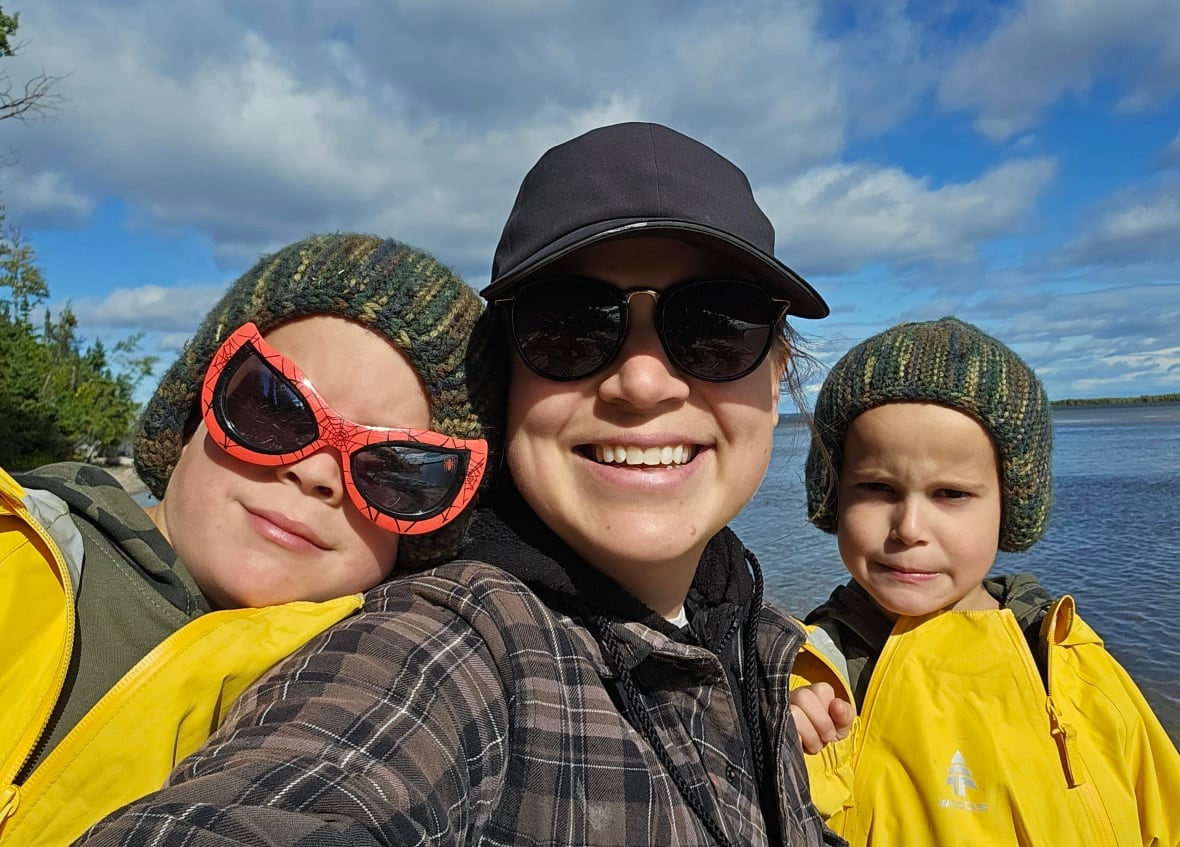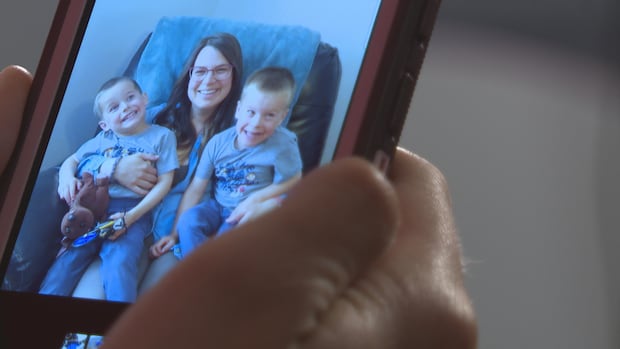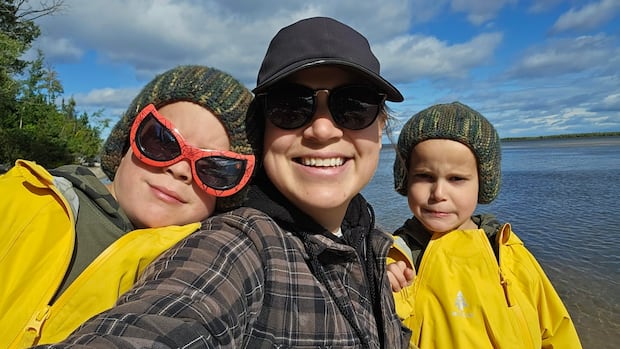 Hilary Fry with her four-year-old twins Reid and Noah. (Submitted by Hilary Fry )
Hilary Fry with her four-year-old twins Reid and Noah. (Submitted by Hilary Fry )
Hilary Fry said it was a huge relief when she found the medication her four-year-old son needs to help with his asthma, but the prescription came with a big price tag the family never imagined.
Reid was around 18 months old when he was admitted to the hospital with respiratory syncytial virus (RSV) and required oxygen support. From that point on, whenever he would pick up a virus, he would have breathing issues and end up in the emergency room. Sometimes it would be so severe that he would end up being admitted into the hospital.
The Fry family have two four-year-old twin boys, Reid and Noah. For Hilary Fry, it was her “worst nightmare” seeing one of her sons struggle to breathe and worrying that any virus he would get, would send him to the hospital.
The family worked with a pediatric team and asthma specialists, trying a variety of medications over several months.
Eventually, Reid’s health-care team in St. John prescribed him with a biologic medication called Dupixent.
That’s when the expenses started.
Every four weeks, Reid gets two millilitres of medication through an injection in his leg. Those two millilitres cost $1,100.
Reid’s prescription is what is considered “off-label.” It’s been approved for treating asthma in children six years and older, but not for children in his age group, meaning the Fry family have to pay out of pocket.
“Reid is four. It’s approved for children with eczema six months and up, so it is safe within Reid’s age group, his specialist was very competent in the safety and efficacy of him having this drug,” said Fry.
Denial after denial
The family tried to get the cost of Reid’s medication covered under their insurance, through programs offered by the drug company Sanofi and from provincial government programs, but all were denied.
There is currently a clinical trial for Dupixent for treating asthma in children between two and six years old. Fry said she tried to enrol, but was again denied.

A prescription is costing this Labrador family $1,100 a month, and they can’t get provincial coverage
A Happy Valley-Goose Bay family is stuck paying out of pocket for their four-year-old son’s prescription, even though it was prescribed and recommended by his health-care team. The CBC’s Regan Burden has the story.
In a statement to CBC, Sanofi, the company that makes Dupixent, said children under six years old would not be considered for their programs due to their prescriptions being off-label.
According to Fry’s research, her family makes too much money for the Newfoundland and Labrador Prescription Drug Program.
“I recognize that that’s a very privileged complaint to have that you make too much money for support, but I really like to acknowledge that this policy is the same across the board,” she said. “So, whether you live in St. John’s or whether you live in Nain, it doesn’t matter. If you make over $150,000 a year, you’re not eligible for any sort of support financially through the government.”
In an emailed statement to CBC News, the Department of Health and Community Services said the program will only cover drugs that are approved by Health Canada. There are exceptional reviews but they are “not considered if the individual does not qualify for NLPDP drug card eligibility [or] the drug is not on the NLPDP special authorization drug list.”
Paying out of pocket has been incredibly stressful, said Fry, and she’s frustrated with the government’s policies and wants to see something change.
Fry said that on top of the stress, the family is forced to worry about how they provide the medication long term.
 Reid Fry’s Dupixent prescription is considered off-label, so his family has been paying for his medication out of pocket. (Submitted by Hilary Fry )
Reid Fry’s Dupixent prescription is considered off-label, so his family has been paying for his medication out of pocket. (Submitted by Hilary Fry )
“I just think that government policies in general are very much crisis driven. So, you know, if your child is in a life-threatening situation, then they’ll dish out what it costs to medevac them 1,500 kilometers away,” she said.
“I don’t know how much [a] medevac costs, but I’m assuming it’s in the thousands. But yet when there’s an opportunity to provide financial support for more preventative and maintenance treatment versus crisis driven treatment, they don’t. And to me it just doesn’t make sense.”
For now, the Fry family has exhausted every avenue they have found to alleviate some of the financial strain.
Fry said they’re hopeful that some sort of support will become available.
In the meantime, Fry has taken on a second job.
Download our free CBC News app to sign up for push alerts for CBC Newfoundland and Labrador. Sign up for our daily headlines newsletter here. Click here to visit our landing page.

